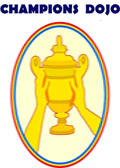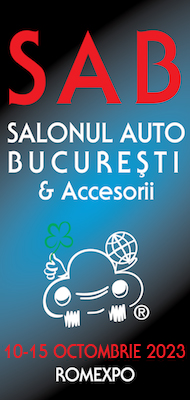| Ecosistemele sunt parteneriatele de nouă generație |
 |
 |
| Luni, 15 Aprilie 2024 14:13 |
|
This isn’t the first revolution in the automotive industry. Invention and reinvention come with the territory in this century-old sector that has anticipated and adapted to every development in consumer society so far. But there is something different about the mobility revolution: it is constantly shifting shape, blowing up the long-established borders around the industry and connecting it with new kinds of players. To reinvent itself this time, the automotive sector is changing one paradigm after another. And, as the next-gen automotive industry is moving into new playing fields, it is rearranging the way it collaborates and partners up. Welcome to the age of ecosystems.
“The shift we are negotiating today involves turning a car designer and manufacturer into a mobility tech player,” explained Jean-François Salles, Renault Group’s VP Partnerships. “It is massively enlarging the breadth of what we do, and making us reach out and look for new mechanisms to create value on the fringes of what we have done so far.” All you have to do is glance at the Renaulution strategic plan to see the extent of the metamorphosis: it spans low-emissions internal-combustion solutions (HORSE), electric vehicles and software (Ampere), circular economy (THE FUTURE IS NEUTRAL ), mobility services (Mobilize), and high-end, zero-emission cars (Alpine). The next-gen automotive industry is actually an industry of industries, and giving rise to increasingly complex and horizontal connections. “From a relationship often based on supply contracts with smaller actors than us, we are now opting for a more collaborative approach, with partners that are sometimes larger than us and far from our core business. Faced with the many challenges posed by the innovations that need to be mastered, we can’t do everything by ourselves,” summed up Philippe Emmanuel Divine, Director of LCV Strategy at the time. To team up with the growing number of players and explore the new ways of cooperating, Renault Group is ushering in a new paradigm: ecosystems. 1+1=3 Next-gen partnerships are win-win and produce more value than the individual partners bring to the table. “For it to be an ecosystem, several partners have to create something they could not have created alone. It’s more than a mutually beneficial arrangement: we create additional value together, and that value feeds back into the ecosystem. That is why collaboration makes so much sense,” expounded Jean-François Salles. In other words, 1+1=3 and even much more! There are several examples of teamwork defying the laws of mathematics. HORSE, for instance, is much more than the sum of Renault’s, GEELY’s and aramco’s expertise: it is building a future world-class internal-combustion and hybrid champion, a complete ecosystem encompassing everything from the components to the alternative fuels. Flexis is more than the aggregate of strengths that Renault, Volvo Group and CMA CGM are pooling to build a pioneering player in low-carbon logistics: it is a joint effort that each partner will get more out of than it puts in. A full ecosystem is coming together around electric vehicles, too: in this micro-galaxy, QUALCOMM TECHNOLOGIES INTERNATIONAL, LTD., Google and Software République are working on the digital architecture for software-defined vehicles, European champion Verkor on the batteries, and Terrafame Ltd on securing the raw materials. “Ecosystems work based on co-development principles,” added Jean-François Salles. “It’s about creating multidimensional value, meaning industrial, financial and technological value.” A question of strategy If, like the universe, these ecosystems are expanding every which way, it’s fair to ask if there is some logic underlying them. “We are setting them up in an orderly, deliberate and methodical way,” Jean-François Salles assured. “The overarching goal is to build a coherent whole. It all starts with the strategic direction from the Renaulution plan. We have clearly identified the needs so now we can identify the technology building blocks or businesses that will benefit from an ecosystem of partners. This is the path we invariably follow when we collaborate. And Renault Group isn’t the only one setting up ecosystems: this is a tried and tested approach that enhances value creation, opens up more opportunities to develop breakthrough technologies and provides more control over risks.” So it is no chance happening that the ecosystems Renault Group is setting up revolve around the Renaulution. There are five main avenues that will lead to the next-gen car, all using an open approach when others would opt for vertical integration. Arnaud FAGES, International Development and Partnerships Director for the HORSE PWT Geely Aramco entity, added that it also has to do with your attitude towards the unknown: “Collaboration is an endless source of intellectual stimulation. When you have to completely reinvent everything you know, and tackle one challenge after another, this stimulation makes all the difference.” A coherent strategy is all the more important as these partnerships come in a variety of shapes: joint ventures (for instance Flexis or Horse), capital investments (Verkor) or long-term business agreements (Terrafame). On each endeavour, the partners need to decide which setup best suits their objectives. But however much the arrangements vary, all partnerships have similar governance. Staying on track All joint efforts follow the same set of rules and processes. “Until recently, our partnerships were a bit scattered,” according to Jean-François Salles. “But, as the company decided to switch to ecosystem mode, it has to make sure all these initiatives are consistent, and it has to set up the same kind of governance.” This governance is an iterative loop that starts with the strategic plan. Once a group of partners has started working towards one of the Renaulution’s goals, the project undergoes three assessments — called PACT (Partnership Control Tower), NRI (Internal Regulation Note) committee and PASHA (Partnerships, ShareHoldings and Affiliates) — to make sure it is delivering the expected benefits and still following its roadmap. A committee of representatives from all the relevant business units manages the operation. The feedback from experience in turn feeds the strategy and its originating role. “This oversight is essential in a group that is becoming more open. The more open you are, the more exposed you are. So you have to protect yourself. Protect your finances and your reputation,” Jean-François Salles continued. “So the Legal, Financial and Strategy departments are involved in this tight governance system. They work a bit like a control tower, monitoring the risks we take and keeping all our initiatives consistent.” These new paradigms don’t mean Renault Group is new to the notion of partnerships — far from it: “The Group has a long history and strong culture around partnerships,” Arnaud Fages added. “We know what to share, what to protect, where our strengths lie and what our weaknesses are. But it’s a new challenge every time. Each partnership exists for a different reason. So we have to provide an overall framework that will secure our model’s future, carry our values and move us closer to our ultimate goals.” A future, in other words, that is well structured and definitely a team win!
** **-- RENAULT |























